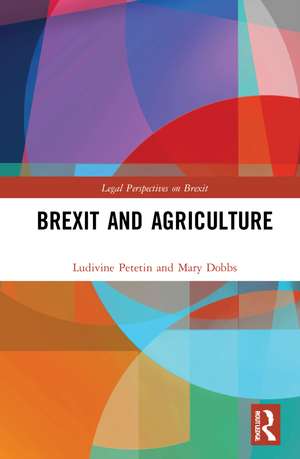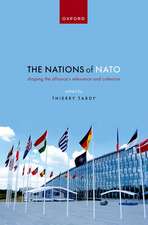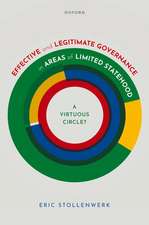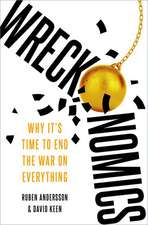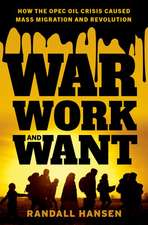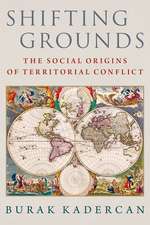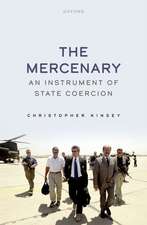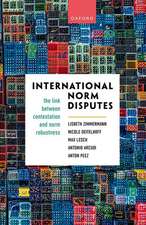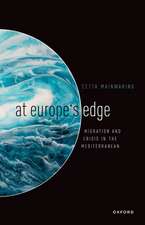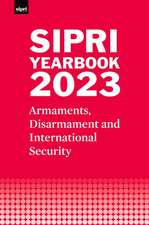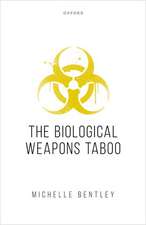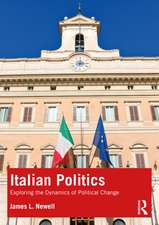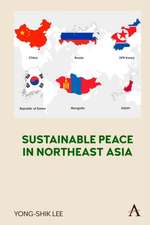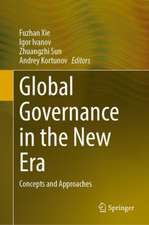Brexit and Agricultural Law: Legal Perspectives on Brexit
Autor Ludivine Petetin, Mary Dobbsen Limba Engleză Hardback – 31 ian 2022
Acknowledging the challenges and opportunities raised by Brexit for the agri-food supply chain and agricultural policies across the UK, this book provides the first in-depth analysis of agricultural policy developments across the UK's four nations rooted in strong theoretical and practical underpinnings.
Arguing that the four nations could be more ambitious in departing from the Common Agricultural Policy and extending beyond the 'public money for public goods' approach adopted across the UK, it critiques the core attributes of their policies with focuses including the debate over outcome-based schemes, governance mechanisms, impacts on farm diversity and path dependency on the Common Agricultural Policy and English approaches. It promotes a 'resilient agriculture' paradigm and utilises social-ecological services, net zero, agroecology and agri-food democracy as the main pathways to achieve this. In doing so, it scrutinises the evolving contextual, political and legal landscape within which devolved and UK agricultural policies are developing from a multilevel governance perspective, examining the implications of WTO law for the UK and its devolved administrations to determine environmental, food and animal welfare standards under the GATT, the SPS and TBT Agreements and financial support schemes under the Agreement on Agriculture.
The book assesses the significance of the Northern Ireland Protocol, the Trade and Cooperation Agreement with the EU and other free trade agreements for standards across the UK and access to markets. From a domestic perspective, challenges to devolution and the stability of the Union are highlighted. Elements of unilateral recentralisation are visible via financing mechanisms, the UK Internal Market Act and the Agriculture Act.
The book's interdisciplinary nature makes it of interest to lawyers, political scientists, economists, human geographers and scientists, as well as policy-makers, agricultural communities, civil society organisations and think tanks in the devolved administrations, the UK, the EU and beyond.
Din seria Legal Perspectives on Brexit
-
 Preț: 137.31 lei
Preț: 137.31 lei -
 Preț: 324.35 lei
Preț: 324.35 lei -
 Preț: 310.65 lei
Preț: 310.65 lei -
 Preț: 312.20 lei
Preț: 312.20 lei -
 Preț: 187.72 lei
Preț: 187.72 lei - 17%
 Preț: 142.32 lei
Preț: 142.32 lei -
 Preț: 184.25 lei
Preț: 184.25 lei
Preț: 1209.29 lei
Preț vechi: 1328.88 lei
-9% Nou
231.39€ • 242.46$ • 191.29£
Carte tipărită la comandă
Livrare economică 12-26 aprilie
Specificații
ISBN-10: 1138587826
Pagini: 374
Ilustrații: 3 Tables, black and white
Dimensiuni: 156 x 234 x 30 mm
Greutate: 0.45 kg
Ediția:1
Editura: Taylor & Francis
Colecția Routledge
Seria Legal Perspectives on Brexit
Locul publicării:Oxford, United Kingdom
Public țintă
PostgraduateRecenzii
Vicki Hird MSc FRES, Head of Sustainable Farming, Sustain: The Alliance for Better Food and Farming.
"Emerging from the EU and the shadow of the CAP, this work offers valuable insights into the development of agricultural policies in each of four parts of the UK addressing their international, environmental and social dimensions. It is a "must-read" for all those interested in the creation of resilient and sustainable bespoke agricultural policies."
Professor Joseph McMahon, UCD Sutherland School of Law, University College Dublin.
"In Brexit and Agriculture, the authors shine a timely light on the task facing UK governments, with the implications for devolution, often left out of debates. They illuminate a pathway to more resilient, fair and sustainable policies, aligned to tackle the urgent crises in climate, nature and health."
Sue Pritchard, Chief Executive, Food Farming and Countryside Commission.
"The authors have provided a most welcome and timely analysis of the legal dimension of post-Brexit agricultural policy across the United Kingdom and, in particular, they reveal admirably how account will need to be taken of both WTO rules and the United Kingdom’s constitutional settlement."
Professor Michael Cardwell, School of Law, University of Leeds.
"UK and EU agriculture policy must deliver for the dual nature and climate crisis- an intergenerational challenge like no other. Brexit and Agriculture succeeds in navigating the salient issues as the UK forges ahead with a domestic agriculture policy with one eye on international markets."
John Martin, Head of Policy and Advocacy, RSPB Northern Ireland.
Cuprins
Chapter 2: ‘Taking back control’? A web of powers and constraints
Chapter 3: The essence of UK and devolved agricultural policies
Chapter 4: Tailoring ambitious policies across the UK: striving for resilience in agriculture
Chapter 5: Shaping governance – changing contexts for future policies
Chapter 6: Treading new, resilient paths?
Notă biografică
Mary Dobbs is a Lecturer in the Department of Law in Maynooth University, Ireland. She is also a Visiting Fellow in the School of Law, Queen's University Belfast; a member of the Brexit and Environment network; and a member of the Future Earth Ireland committee based in the Royal Irish Academy.
Descriere
Acknowledging the challenges and opportunities raised by Brexit for the agri-food supply chain and agricultural policies across the UK, this book provides the first in-depth analysis of agricultural policy developments across the UK's four nations rooted in strong theoretical and practical underpinnings.
Arguing that the four nations could be more ambitious in departing from the Common Agricultural Policy and extending beyond the 'public money for public goods' approach adopted across the UK, it critiques the core attributes of their policies with focuses including the debate over outcome-based schemes, governance mechanisms, impacts on farm diversity and path dependency on the Common Agricultural Policy and English approaches. It promotes a 'resilient agriculture' paradigm and utilises social-ecological services, net zero, agroecology and agri-food democracy as the main pathways to achieve this. In doing so, it scrutinises the evolving contextual, political and legal landscape within which devolved and UK agricultural policies are developing from a multilevel governance perspective, examining the implications of WTO law for the UK and its devolved administrations to determine environmental, food and animal welfare standards under the GATT, the SPS and TBT Agreements and financial support schemes under the Agreement on Agriculture.
The book assesses the significance of the Northern Ireland Protocol, the Trade and Cooperation Agreement with the EU and other free trade agreements for standards across the UK and access to markets. From a domestic perspective, challenges to devolution and the stability of the Union are highlighted. Elements of unilateral recentralisation are visible via financing mechanisms, the UK Internal Market Act and the Agriculture Act.
The book's interdisciplinary nature makes it of interest to lawyers, political scientists, economists, human geographers and scientists, as well as policy-makers, agricultural communities, civil society organisations and think tanks in the devolved administrations, the UK, the EU and beyond.
